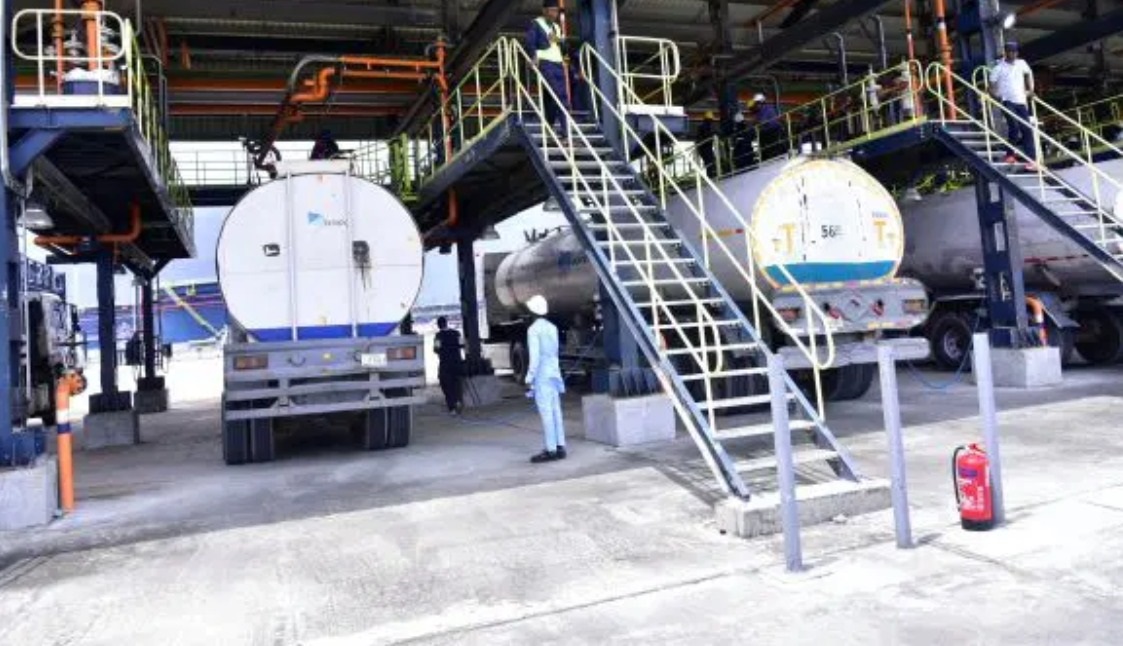In a major milestone for Nigeria’s energy sector, Dangote Petroleum Refinery has revealed plans to begin distributing petrol and diesel across the country starting 15 August 2025, signalling a pivotal step towards energy self-sufficiency.
The announcement was made in Lagos on Sunday by refinery spokesperson Anthony Chiejina, who disclosed that the company had purchased 4,000 CNG-powered fuel tankers to facilitate the logistics rollout. The operation will be executed in stages, supported by investments in over 100 mobile CNG tankers and fuelling stations.
“This initiative reflects our broader strategy to cut distribution costs, improve access to fuel, and support economic development across all sectors,” Chiejina said. “We are offering a more sustainable and affordable fuel solution for Nigerians.”
The company intends to deliver refined products directly to petrol stations, large industrial users, airlines, and telecommunications companies. No extra fees will be charged for logistics—a move expected to lower fuel prices and production costs.
Chiejina also announced a credit support programme allowing bulk buyers—those purchasing 500,000 litres or more—to access an equivalent volume on credit, pending bank guarantees. The registration and verification process will begin on 16 June and run through to the official launch date in mid-August.
He highlighted the alignment of the initiative with President Tinubu’s economic reform agenda, thanking the government for backing the project through the Naira-for-Crude policy, which has helped ensure domestic fuel availability despite global price volatility.
“This is more than fuel distribution—it’s a turning point for Nigeria’s economy,” he said. “From strengthening SMEs to increasing government revenue and restoring investor confidence, the impact will be far-reaching.”
The refinery, which started operations in 2024, has a daily refining capacity of 650,000 barrels, making it the largest of its kind in Africa. Industry observers view the August rollout as a significant development that could reshape Nigeria’s downstream oil landscape.





